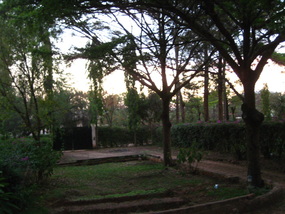
This ones a long one---but a good one (:
Many people have been asking me through email or in Skype what it is like to live in Tanzania. I have been coming back and forth to this part of the world for the last few years that I forget that I may not have actually ever thoroughly explained this to some people. So this blog is dedicated to a glimpse of what life is like in Tanzania and some of the things we encounter on a regular day here.
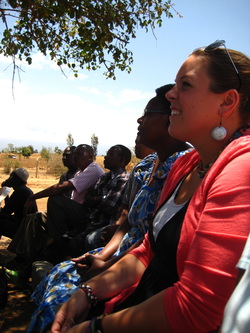
One of the biggest difficulties we face here is the difference in culture that plays into every thing we do. These differences sometimes cause extreme frustrations and other times open up our eyes to a different way of life. The biggest struggle for me has been the communication differences. Americans tend to communicate in a way that tells the listener more information than they often need to know, focuses mainly on getting their own message across and often includes their feelings on things. Tanzanians tend to tell as little information as possible, always try to please speaker by rarely worrying about their view on things and listening, and never talk about their feelings directly. This can often be stressful and lead to many miscommunications between the two groups but it also has taught me to focus less on what I want to say but more on the other person.
Another cultural difference is that Americans tend to create goals and make plans. They tend to worry about things like money, especially if you are living on $5000 for an entire year. Where Tanzanians tend to focus on one day at a time. They often do not budget or plan for things. This can be very difficult when living in a house with both groups but it has taught all of us to meet in the middle and find ways to see each other’s point of view.
Another big cultural difference is the level of work that occurs. People often say that Americans live to work and will work until they die. This is often seen in the fact that most Americans only get 10 days off a week and work ridiculous hours. Tanzanians do not worry so much about work but instead focus on relationships and interactions with each other. For someone like myself who is used to having every minute of the day and the weekend booked with work or things to be working on it has been hard to get used to the slowed down pace of life but it is teaching me there is more to life than working so hard. Throughout my trips here and my interactions with people there are many more differences that I can talk about. Every encounter that is frustrating I have to think to myself- this could be a cultural difference and I have to find a way to learn from it.
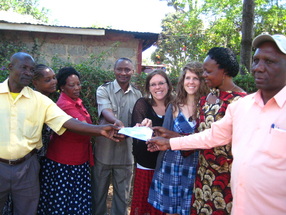
Another thing I deal with in Tanzania is the language barrier. The main language in Tanzania is Swahili. While there are large numbers of people that speak English, in the villages we work and in most events, meetings, and daily interactions we have are communicated in Swahili. Majority of the friends we have here speak English often but when they do speak Swahili it is often a combination of formal Swahili and Swahili slang. This has made trying to learn the language very hard. When people speak Swahili they often speak so fast that it is hard to hear the individual words, which also makes it hard to learn. While I have picked up more Swahili than I have had in the past I still speak like a 1st grader. We live with three Tanzanian’s who speak Swahili to us but I still really struggle. Jillian on the other had is doing pretty well picking up the language. This sometimes makes it hard for me because people will try to speak to me and then immediately turn to her and speak, leaving me lost. Often times I get by with my limited vocabulary and my swanglish. The first few weeks I really tried hard to learn it. I read my Swahili book, made flashcards, wrote in my notebook, and tried really hard to listen to every word said to me, but after about week 4, frustration set in and I started to give up. One of the major things I want to accomplish this year is learning Swahili. To do that Jillian and I are going to go to a two-week course in Dar Es Salaam (the largest city in TZ) and then we hope to get a language tutor when we return so I am hoping I will learn more there.
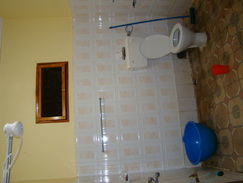
A few blog posts ago I told you about the house we moved into. It is a great house and a great place to live but just like anywhere we have some issues with the house we need to work out and it leads to some hilarious and interesting events. For example we are having major water problems in our bathroom. At home you would look up a plumber online, call them, and get your water fixed or you would call your landlord. Here you are left to try to find a fundi (repair man) that knows about plumbing. Where you find that man is through word of mouth or through your friends. You have to negotiate a price, watch the man work, question what he does, and then call him back when it breaks again. After our first fundi visit Jillian and I woke up at 2am to water rushing into the bedroom from the bathroom shooting out of the pipe the fundi just fixed for $20. The room filled with water and water was shooting around the bathroom. It was quite a hilarious site and one we still laugh at to this day. After his return to the house he fixed our bathroom but than two weeks later our kitchen sink started shooting out water and flooded the house again. So water has been a constant issue. Luckily for us all Tanzanian houses tend to have cement floors that have been painted so water is not as much of a problem as it would be at home.
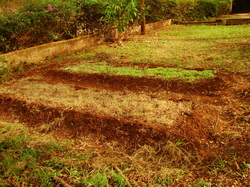
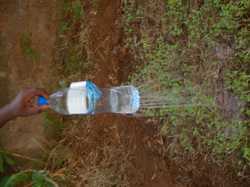
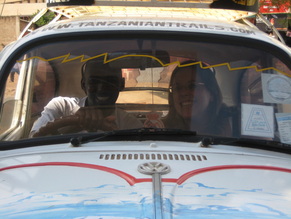
Many of the westerners I know here have very similar feelings about living here. They go back and forth between loving every minute of the fabulous life that we live here and the frustrations when they miss parts of their life back home. Sometimes things here can be so challenging going between the slow pace of life that it makes you feel like you are never going to accomplish anything, to the extreme excitement you feel when you have achieved a goal.
For Example:
The frustration of the Immigration Office here asking you for $300 extra dollars in corruption charges on top of the $550 you already have to pay for your residency permit can then be trumped by the fantastic feeling of using your contacts to find the right person who will help you meet another contact who will help you with your paperwork without the extra fees.
The frustration of going to the market and being told the prices are double because you are a “Mzungu” (white person) met with the fantastic feeling that comes after you have used your limited Swahili and knowledge of what food prices should be to bargain down and not get ripped off.
The frustration of walking in the hot sun on the dirt roads to town while you really miss your car at home met by the fantastic feeling of meeting your good friends on the road who offer you rides as soon as they see you.
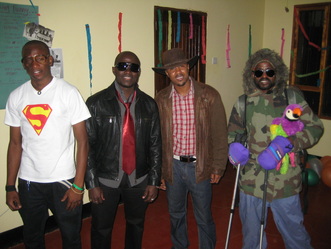
There are so many things here that can lead to frustration such as the 3 hours it takes to do a load of laundry to then have the neighbor burn his garbage next to your laundry line so you have to wash everything again.
Then there are things that lead to the fabulous feeling like when you are sitting at a café working on work and someone comes up to you and asks you about your project. That encounter than leads you meeting a great set of new friends that also are working on similar things and you feel like you are not on your own.
The frustration of missing the autumn season back home and getting home sick when you see pictures of jack-o-lanterns and Halloween costumes is washed away when you construct Halloween decorations out of cardboard, plastic bags and newspaper and all your Tanzanian friends (who you have had to explain this silly holiday to in many different ways) show up in amazing costumes and you have an amazing time.

A Typical Day
A common question I keep getting is, “what is your typical day like?” This question is a hard one to answer because anyone who has lived here can tell you every day is a new and wild adventure. But some consistency does occur throughout the day so let me try. Every morning Jill and I wake up around 7ish. We either get a ride from some friends or walk the 45 minutes to town to our favorite coffee shop Aroma Coffee. There we usually met some friends and have chai waziwa (spiced milk tea) and mandazi kuoka (bread rolls). We go there so often the woman there knows our order and is now trying to save us the Mandazi Kuoka each day because they sometimes sell out before we get there.
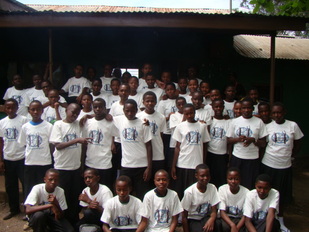
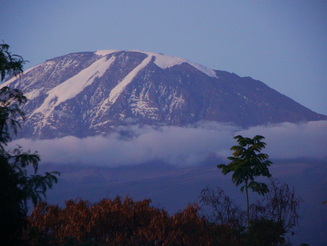
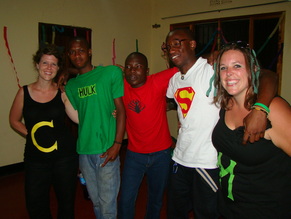
Miss you all! (:
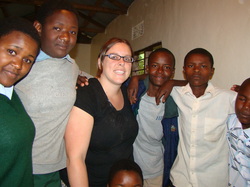
 RSS Feed
RSS Feed